Mozambique: Government guarantees salary continuity for former officials and deputies starting in 2025
Tough Questions and Alternative Facts at Feisty FT Investment Summit – By Colin Waugh
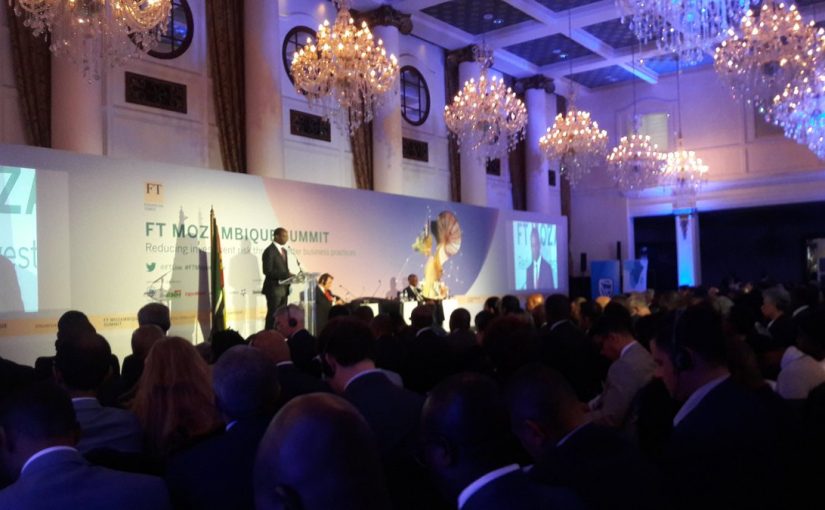
Picture: Courtesy of Moz Resources Post
What’s happened in Mozambique’s economy since last year? The answer to that question was what the delegates at the 2nd annual Financial Times Mozambique Investment Summit had come to hear in a packed hotel Polana conference hall in Maputo today. In the interim, hadn’t everyone been reading that all was gloom and doom with debt, deficits, donors’ departure and development in the doldrums? Time to look again. Some things have not improved, granted, and the country is no longer the poster girl of Africa, perhaps, but despite it all something positive seems to be stirring under the surface – or perhaps offshore, in Mozambique.
After a keynote speech from Prime Minister Carlos Agostinho Do Rosario, during which all the boxes from ‘reform in government’ to ‘improving fiscal efficiency’, ‘local content’ and ‘ the fight against ‘corruption’ were ticked, FT Africa editor David Pilling picked up where he left off last year at the same event, asking Minister of Economy and Finance Adriano Maleiane: ‘So when is Mozambique going to come clean about its debts?’
Delegates who attended last year could have hoped that twelve months on and a major international fraud investigation later, there would have been more answers to the questions that were then swirling – and still continue to swirl – around the subject of the $2 billion plus state ‘guaranteed’ loans, often referred to somewhat euphemistically as Mozambique’s ‘hidden debts.’ However the minister, who was looking a little more comfortable, or rather less uncomfortable, when not answering the same questions about disappeared debt proceeds compared to last year, at least had some new phrases to offer.
These include included ‘accounting transparency,’ apparently the explanation as to where the disappeared $500 million – one of the Kroll & Co’s report’s key findings – had gone. That amount, explained Minister Maleiane, was fully transferred to the government budget and so accounting clarity has been achieved and delivered, the audience was asked to accept.
While there was not not much progress to report on the subject of the debts, and the associated lost political confidence will slowly have to be regained, undoubtedly Mozambique’s underlying investment climate is more buoyant than last year, as it is in many emerging markets for the first time in several years. The world economy is booming, albeit unevenly, and just in the past week, the price of oil and other commodity indicators have moved into new higher ground, all of which should be good news for the Mozambican economy.
The currency, which was in a state of collapse this time last year has recovered, and Mozambique has signed off on the launch of Africa’s first Floating Natural Gas Facility (FLNG) earlier this year, while officially welcoming Exxon as an offshore gas investor to the country with its stake in Rovuma Field’s Area 4. There is relative peace in the countryside and maybe, just maybe we will witness the official opening of Africa’s longest suspension bridge between Maputo and Catembe before 2017 is out.
While some partners have been lost, stalwarts and newcomers alike sense opportunity. With several Western governments, the IMF and the World Bank retrenching and putting the country on hold with a lot of financial revelations undoubtedly still to come, for those with a focus on business, the sun over Mozambique is certainly shining more brightly from the East.
Hardly a week goes by without a new announcement of investment, infrastructure, partnership talks or an official trade visit, as often as not from Asia it seems. Meanwhile, long-time Mozambique backers from Anadarko to Italy, from Beijing to the bankers – be they BiM, Barclays or BCI – among others – are in position and preparing for the long-delayed dividends that Mozambique has for long promised and as yet has not managed to deliver.
Returning to the FT podium from this morning, Standard Bank Group’s Sola David-Borha was able to report that Mozambique was its best performing African balance sheet this year, while in agriculture, overwhelmingly the country’s largest employer with 81% of the workforce involved – MD Ramesh of OLAM International saw disappointment as well as opportunity. For OLAM, a player in 25 African countries and with a Mozambican presence for many years, the combination of land and water in the country presented an irresistible opportunity.
However, Ramesh explained, the lamentable quality of equipment and the labour force and the consequent miserable yields – e.g in cotton, the worst in Africa – were a source of disappointment. Land ownership, often cited as an obstacle is not the problem, however, as the important thing for players like OLAM is access, not ownership. OLAM’s goal, and one which Ramesh felt should be Mozambique’s goal too, is to focus on value added as well as pure raw production.
The energy sector panellists picked up on H.E. Leticia Klemens’ address with warnings about the complexity of the challenges ahead as well as the now familiar ‘all ready to go’ statements from Anadarko’s Sir John Grant and Shell’s Onno van Kessel. Meanwhile Sasol, the biggest taxpayer and currently only gas producer faced questioning about its revenues and returns taken out of the country, a topic of continuing controversy for Mozambicans.
By Colin Waugh
- Colin Waugh is a commodity investor and researcher based in Maputo


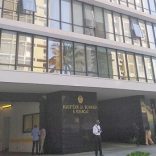
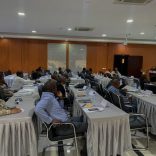
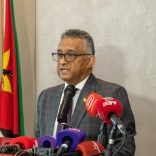
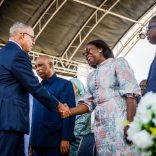

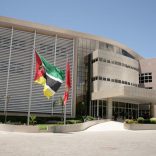




Leave a Reply
Be the First to Comment!
You must be logged in to post a comment.
You must be logged in to post a comment.